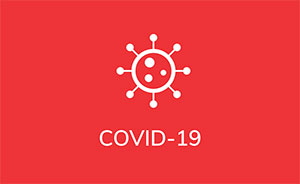This article has been medically reviewed by Dr. Brian Koffman on May 1, 2023.
The Bottom Line:
Preliminary results suggest that interrupting Bruton tyrosine kinase (BTK) inhibitor therapy around the time of COVID-19 vaccination may result in a more robust antibody response for patients with chronic lymphocytic leukemia (CLL).
Who Performed the Research and Where Was it Presented:
Dr. Clare Sun from the National Heart, Lung, and Blood Institute (NHLBI, which is part of the National Institute of Health) and colleagues presented the results at the American Society for Hematology (ASH) Annual Meeting in 2022.
Background:
Patients with CLL / SLL (small lymphocytic lymphoma) are immunocompromised, regardless of their treatment status, meaning that their immune system does not function normally. This is due to having a cancer of the immune system. One of the consequences is that they have a hard time making antibodies in response to vaccinations. In addition, we know from other research studies that some of the more common CLL and SLL therapies, such as BTK inhibitors and anti-CD20 monoclonal antibodies, can further interfere with the antibody response.
In this video, Dr. Nicole Lamanna, a CLL specialist at Columbia University Medical Center in New York, NY, interviewed Dr. Clare Sun, an Associate Research Physician at the NHLBI in Bethesda, MD. They discussed the results of a study looking at antibody responses to the COVID-19 vaccine in patients who were on a BTK inhibitor or BCL-2 inhibitor (venetoclax).
Methods and Participants:
This was a retrospective study of patients with CLL / SLL at the National Institutes of Health (NIH). It included patients who were treatment-naïve (meaning they have not received any type of treatment yet for their CLL / SLL) and those who were currently being treated with a BTK inhibitor or BCL2 inhibitor. Patients who had previously had COVID-19 infection or who had received COVID-19 monoclonal antibodies for treatment were excluded. Antibody levels were measured after patients completed their primary COVID-19 vaccine series (which at the time was two doses) and after a third monovalent booster dose.
Results:
- A total of 86 patients were included in the study (54 on a BTK inhibitor, 14 on a BCL- 2 inhibitor, and 18 who were treatment-naïve).
- Patients who were treatment-naïve tended to have higher antibody levels than patients on a BTK inhibitor or BCL-2 inhibitor.
- The proportion of patients with detectable antibodies increased after a monovalent booster dose.
- Encouragingly, of BTKi-treated patients with a weak antibody response to the primary two-dose series, 10/13 (77%) mounted a strong antibody response after receiving a monovalent booster dose.
- T-cell responses were detectable, but their levels were not related to antibody responses.
- To test if temporarily holding treatment could improve antibody responses, researchers had twelve patients stop their BTK inhibitor one week before their scheduled booster dose and stay off it until two weeks after their booster dose. Then, researchers compared their antibody levels with patients who continued taking their BTK inhibitor as usual.
- Patients who stopped taking their BTK inhibitor had higher antibody levels compared to those who did not stop their therapy.
- Antibody levels declined to 50% of their peak levels by day 111 in all patients whether they had held their medication for the booster or not.
- These results are not definitive due to the small number in the study and a non-randomized trial design. Still, they suggest that stopping therapy around the time of vaccinations should be studied in more detail, and interrupting treatment for CLL / SLL should only be considered in patients with stable disease.
Conclusions:
These results suggest that temporarily stopping BTK inhibitor therapy one week before COVID-19 vaccination and holding it until two weeks afterward may result in a more robust antibody response for patients with CLL / SLL. While it is too early to officially recommend temporarily interrupting medications, researchers hope to learn more about how to help immunocompromised individuals have an improved response to COVID-19 vaccinations.
Links and Resources:
Watch the interview on the abstract here:
You can read the ASH abstract here: Booster and Btki Interruption Improve Response to SARS-CoV-2 Vaccine in Patients with CLL.
Take care of yourself first.
Ann Liu, PhD



